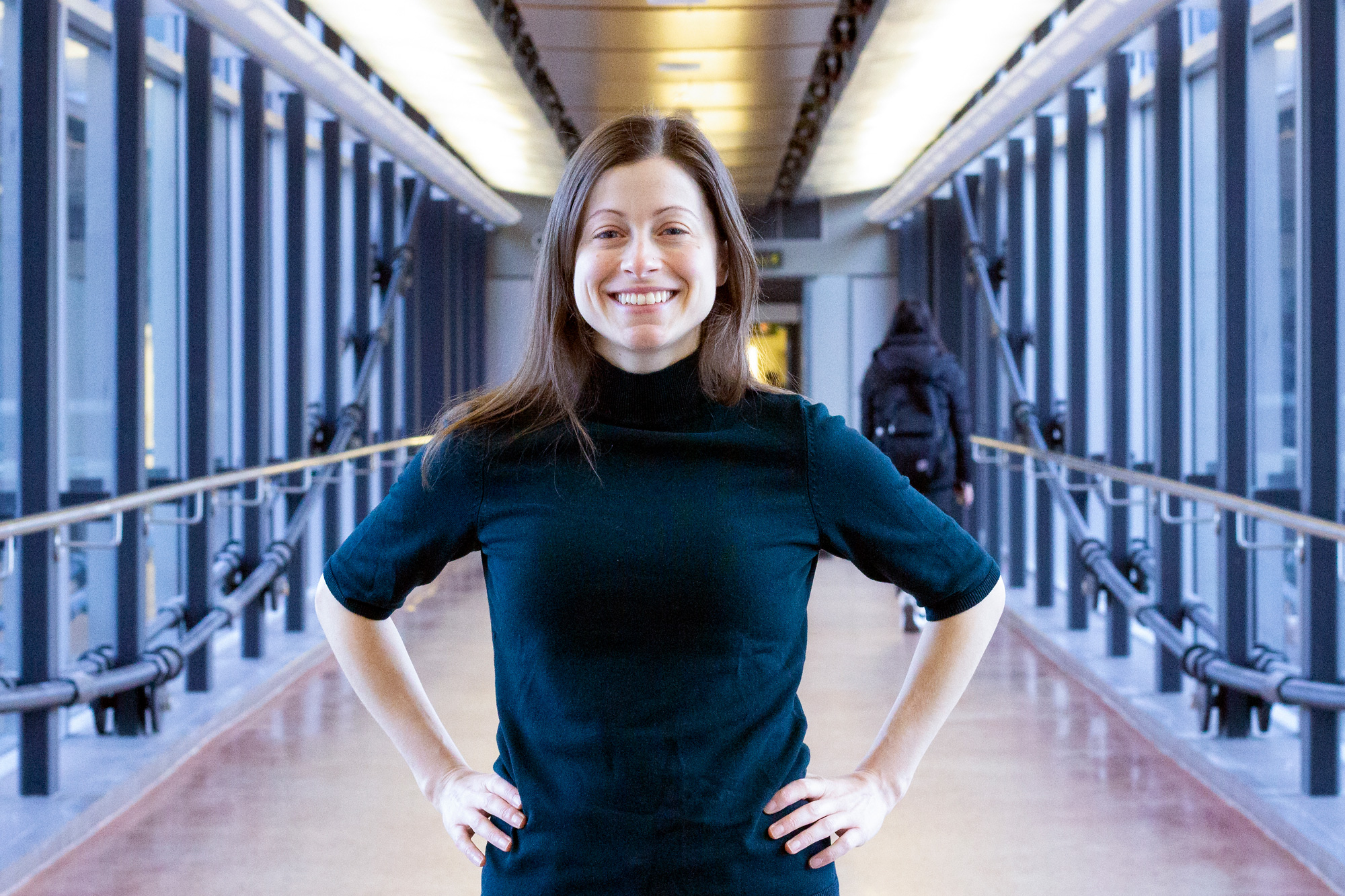
Maria Ioannou, assistant professor in the Department of Physiology and member of the Neuroscience and Mental Health Institute.
"Go where the road takes you." This is sage advice from Maria Ioannou, assistant professor in the Department of Physiology, member of the Neuroscience and Mental Health Institute (NMHI) and one of the newest investigators to join the Faculty of Medicine & Dentistry team. Ioannou's career is guided by the pursuit of joy in the day to day and by following the data.
What brought you to the University of Alberta?
The University of Alberta is one of the best places in the world for me to run my research program! As a cell biologist/neuroscientist who more recently started studying lipid biology, I am very fortunate to be surrounded by so many relevant research networks, such as the Group on Molecular and Cell Biology of Lipids, the NMHI and the Department of Physiology. I have tremendous support here and amazing colleagues to collaborate with and learn from.
What is lipid biology?
Lipids are a group of biological molecules (which include fats, oils, waxes, certain vitamins and hormones) found throughout the body. Lipids play a number of vital roles, including energy storage, cellular communication and protection.
My research is looking at how neurons manage lipids damaged by oxidative stress. I think this is really important to help us understand what happens to neuronal lipids during pathologies such as neurodegenerative disease. But there is a lot of fundamental neuronal cell biology surrounding lipid homeostasis that is entirely unknown.
What motivated you to pursue science as a career?
I started in the lab as an undergraduate student because I wanted to see what it was like. I thought I would stick with it as long as it was fun. It never stopped being fun. I love how projects take you in unexpected directions and how I am constantly learning new things. It's a challenging career, but it's incredibly rewarding to solve problems and discover new things.
Initially, my post-doctoral work studied neuron-glia communication, which led me to find that fatty acids are transported between the cell types. The rest fell into place as I was able to combine my research strengths in cell biology and neuroscience-my approach to science has always been to go where the data takes you and the data took me to studying lipids in the brain.
Any advice for students who aspire to follow a similar path?
Get comfortable with failure. Experiments often don't work and rejection letters are common. You have to enjoy the process, the small victories along the way. Just keep pushing forward. The fear of failing is only going to hinder your success.
What is your favourite part about living in Edmonton?
I think Edmonton is a great place to raise a family, which is incredibly important to me. I have a two-year-old daughter who is so much fun to be around.
I have also enjoyed all of the festivals in the summertime and I am looking forward to my first Edmonton winter. I lived in Virginia for the last three years while I was completing a post-doctoral fellowship at the HHMI Janelia Research Campus in Ashburn, Virginia. Now, I am looking forward to Edmonton's snow and outdoor hockey - I used to be pretty good at it.
Who do you look up to? Do you have any heroes or mentors?
Professionally, my greatest mentor is Peter McPherson, my PhD supervisor while I was at McGill. I wouldn't be where I am without him. He's still my go-to for advice. Personally, I have always looked up to my brother, Michael Ioannou. I think I get my competitive nature from him, which has inevitably contributed to my success in science.
What do you hope to bring to the U of A and to the neuroscience research being done here?
One of my other research interests is using microscopy to understand how neurons and other cells in the brain communicate. I hope to help grow advanced microscopy here at the University of Alberta. I have extensive training in imaging and my lab will predominantly use microscopy to answer biological questions. Through collaborations and supporting our core facilities, I hope to increase the use of advanced microscopy on campus and increase the University of Alberta's reputation for imaging excellence.